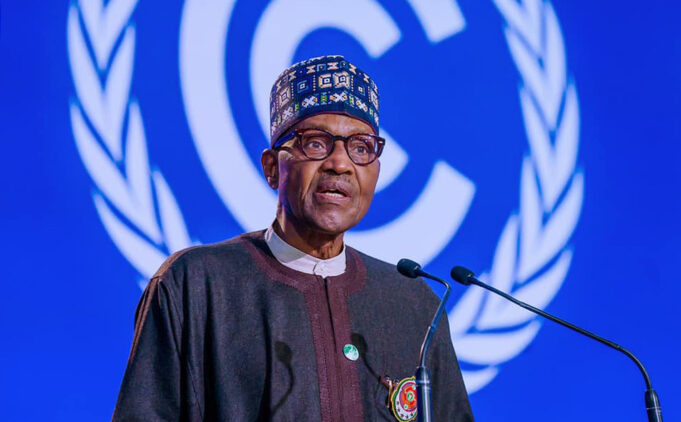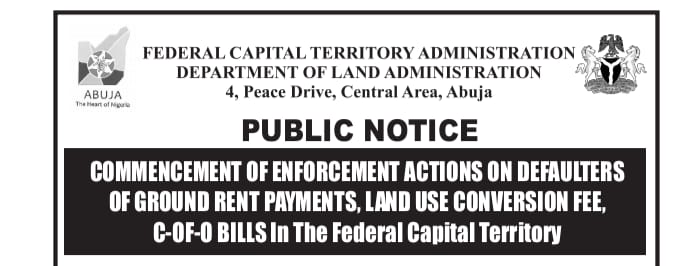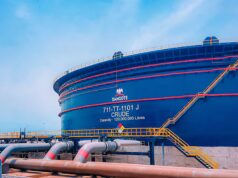For Nigeria to bridge the infrastructure gap and achieve an appreciable level of the National Infrastructure Stock, $1.5 trillion is needed over a period of 10 years.
President Muhammadu Buhari gave the figure on Tuesday in Glasgow at a COP 26 high-level side event on improving global infrastructure hosted by President Joe Biden of the United States, EU Commission President, Von Der Leyen and the UK Prime Minister, Boris Johnson.
“Nigeria is ready for your investments in infrastructural development in the country.
“My administration has established a clear legal and regulatory framework for private financing of infrastructure to establish a standard process, especially on the monitoring and evaluation process.
“We look forward to working with you in this regard,” he told world leaders at the high level meeting on the margins of the climate change conference.
President Buhari also declared that his administration had taken infrastructure expansion in Nigeria seriously, conscious of the fact that new investments in critical sectors of the economy would aid lifting 100 million Nigerians from poverty by 2030.
“There is a nexus between infrastructural development and the overall economic development of a nation.
“My administration identified this early enough as a major enabler of sustainable economic development and the realization of other continental and global development aspirations particularly the 2030 Agenda for Sustainable Development Goals,” he said.
The President welcomed the G7 countries for its ground-breaking plan to mobilize hundreds of billions of dollars of infrastructure investment for low – and middle-income countries.
He noted that the “Build Back Better World” plan, an initiative of the G7 countries, is expected to be a values-driven, high-standard, and transparent infrastructure partnership.
“It is our fervent hope and expectations that this plan will be pursued to its logical conclusion in order to bridge the infrastructural gap between the North and South,” he said.
The President also used the occasion to outline the principles, values and standards Nigeria would like to see from infrastructure initiatives and the challenges the country has faced in partnering with donors on infrastructure development.
“The aim of pursuing quality infrastructure investment is to maximize the positive economic, environmental, social, and development impact of infrastructure and create a virtuous circle of economic activities, while ensuring sound public finances.
“This virtuous circle can take various forms in stimulating the economy,” he said.
The Nigerian leader noted that infrastructure investment should, therefore, take into account economic, environmental and social, and governance aspects, guided by a sense of shared, long-term responsibility for the planet, consistent with the 2030 Agenda for Sustainable Development.
The President added that the positive and negative impacts of infrastructure projects on ecosystems, biodiversity, climate, weather and the use of resources should be internalized by incorporating these environmental considerations over the entire process of infrastructure investment.
He also called for the environmental impact of infrastructure investment to be made transparent to all stakeholders, noting that this will enhance the appreciation of sustainable infrastructure projects and increase awareness of related risks.
- Tinubu to ministers: Obtain presidential clearance for police escorts - December 10, 2025
- Jigawa: Between Gov Namadi and Persons with Disabilities - December 10, 2025
- Death came for the king’s seven sons, by FUNKE EGBEMODE - December 10, 2025










